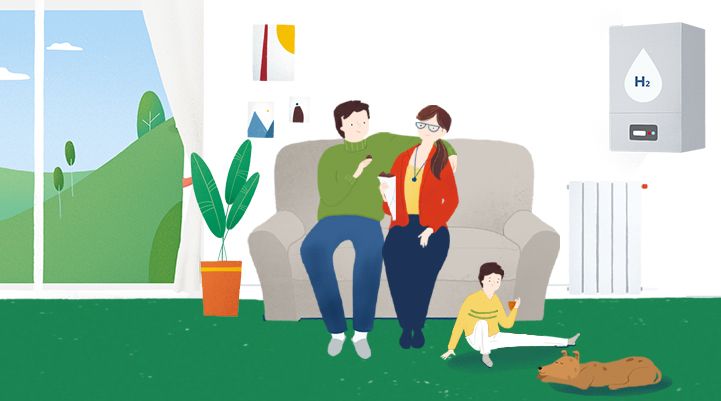In recent months, the publication of European Energy Efficiency Directive 2023/1791 has sparked concern, confusion and even fake news about the future of gas boilers. However, it is crucial to clarify that the Directive does not prohibit the use or installation of gas boilers. Nor does it require them to be replaced exclusively by aerothermal solutions or heat pumps, a measure that would be economically unfeasible for many households.
Freedom to choose efficient solutions
European regulations promote the modernisation of heating systems, encouraging more efficient and less polluting technologies, but leave the final choice to the users. This means that customers can opt for the solution that best combines savings, efficiency, comfort and an investment tailored to their needs.
An enlightening example can be found in the automotive sector: no one is currently obliged to buy an electric car and traditional fuel vehicles are still the best sellers. Similarly, heating system users are free to choose gas boilers as an efficient and affordable solution, without impositions or excessive costs.
In Spain, with its diversity of climate zones, household economies and housing types, there is no single best solution. Gas boilers therefore remain a key alternative, especially as they offer an affordable and efficient transition to cleaner energy systems, such as renewable gases.
The future of gas: renewable and compatible with hybrid solutions
Renewable gas is already a reality in Spain. Spain currently has eight biomethane plants in operation and more than 500 projects under development, consolidating renewable gas as a mature and sustainable alternative.
Today’s condensing boilers are fully compatible with renewable fuels such as biomethane or hydrogen, ensuring their long-term viability with no need for retrofitting.
In line with this evolution, developers and builders are adopting hybrid solutions that integrate gas and electricity, complying with the requirements of the Technical Building Code (TBC). These solutions allow users to enjoy efficient and flexible climate control systems.
Just transition: avoiding disproportionate costs
Opting exclusively for electrification, such as aerothermal energy or heat pumps, poses significant economic and technical challenges. According to recent studies carried out by Arthur D. Little for the Naturgy Foundation, installing an aerothermal system can represent more than 50% of the average annual income of a Spanish family, which is unaffordable for many households, especially those with lower resources.
In comparison, replacing a gas boiler costs up to 70% less than installing an aerothermal solution. Gas boilers also offer high efficiency and compatibility with renewable gases, making them a practical and affordable choice.
The use of boilers not only benefits the population, who can access more cost-effective and practical solutions, but also installers. For them, gas boilers are a technology that is easier to operate thanks to their ease of installation, simplified commissioning and practical and efficient maintenance.
Conclusion
Gas boilers are not prohibited. On the contrary, they represent an efficient and affordable solution which, together with the development of renewable gases, supports a sustainable and just energy transition.
The gas sector will continue to drive the shift towards cleaner fuels, such as natural gas and its renewable variants, instead of more polluting options such as coal or diesel. Technology neutrality and diversity of energy solutions will be essential to ensure an accessible, efficient and sustainable future for all.







